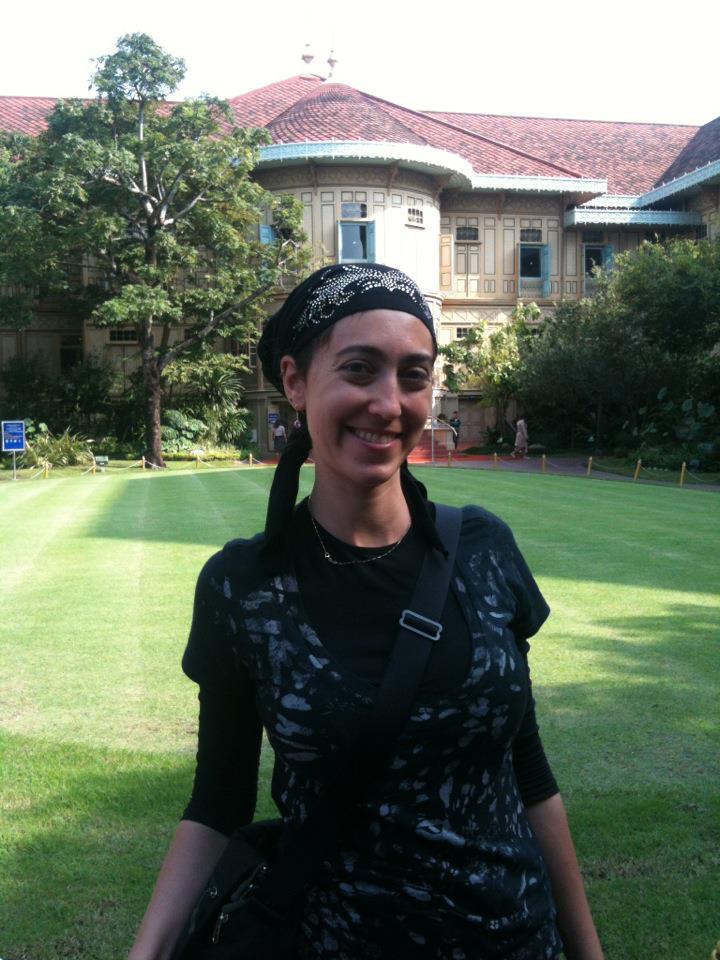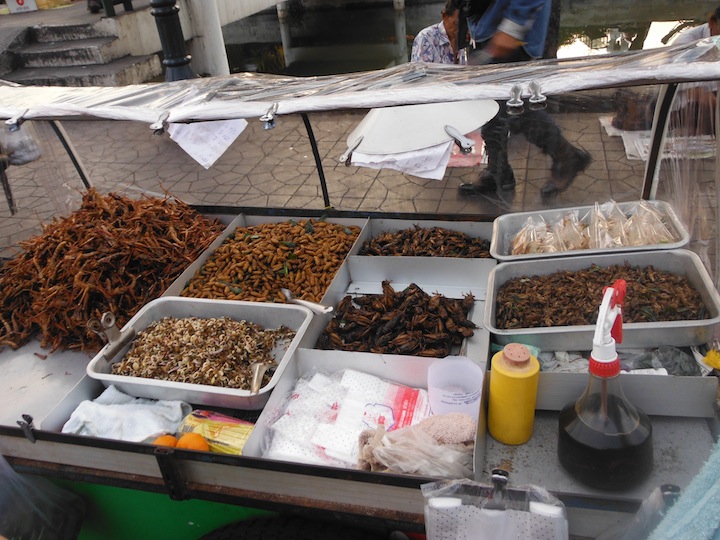Traveling Solo on an Overnight Bus with a Baby
Last night I went solo on the bus overnight from Bangkok to Chiang Mai. It was a long night with not much sleep, so traveling this way is not what I would recommend. Because tonight is New Year’s, the guesthouses in Chiang Mai are all full, so finding a room took many hours, which didn’t help after the journey!
The journey started out with me bringing Akiva (and all our stuff) to the travel agent’s near Khao San Road in Bangkok. The agent told me the bus would pick up from there, so I dismantled Akiva’s stroller and took the bags from under it for ease of loading. Of course, it being Thailand, the bus actually picked up from a location quite far away, so I had to put everything back together again to transport it. The bus was an hour and a half late, too.
Fortunately, a few kind people helped me. If not, I am not sure where I would have found a seat on the bus because it was overbooked. It was difficult to juggle the various bags, stroller, and baby, since I had to be capable of handling it all at once. This slowed me down considerably and I was one of the last people on the bus. Fortunately, an Israeli couple I met at the Chabad House in Bangkok was also on the same bus, so they took a bag of mine and claimed a seat for me.
I like to be next to a window and toward the front of the bus. The window is good because A) it means I only have to keep Akiva from going in one direction (to my side), rather than two (to both sides) and B) it gives a few extra inches of space between the seat and the window, and when there are two people in a seat instead of one, space is at a premium! I like to be near the front because A) it’s less bumpy, which is better for keeping baby asleep and B) I have a tendency to get motion sickness, which is less when I’m in the front (motion sickness is bad enough, but motion sickness with a baby is even worse). Thanks to my Israeli friends reserving a seat with one of my bags, I was able to get a pretty good seat.
Fortunately, Akiva slept really well on the bus. He went right to sleep when I nursed him and whenever he woke up, I was able to nurse him back to sleep again easily. Of course, when he woke, he screamed his head off until I was able to get in a position to nurse him, which I am certain my fellow bus-riders did not appreciate. But he was quite good on the whole.
Of course, this does not necessarily mean I was able to sleep! Even though the seats do recline, I was afraid of dropping Akiva if I fell asleep, so I kept a firm grip on him. I also tried sleeping on my side a bit, so he could lay directly on the seat, but there really was not enough room.
If possible, I would recommend doing such a journey with a partner. That way you can sleep in shifts. It might also be possible to lay down with the baby in between you in a secure enough position that he/she will not slide off the seat.
If traveling solo on the bus again, I would probably consider buying myself a second ticket and taking up two seats, especially in a place where bus tickets are so inexpensive and the bus ride is so long. More space = more comfort and more comfort = more sleep. If you can afford it, it is totally worth it!
Read More








